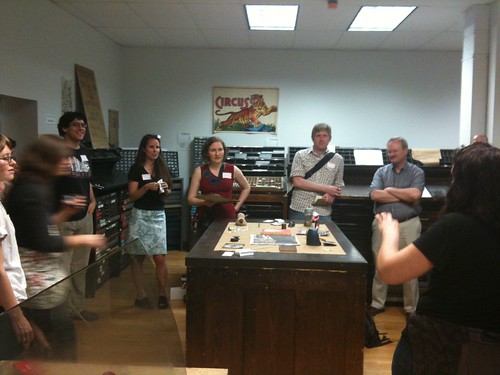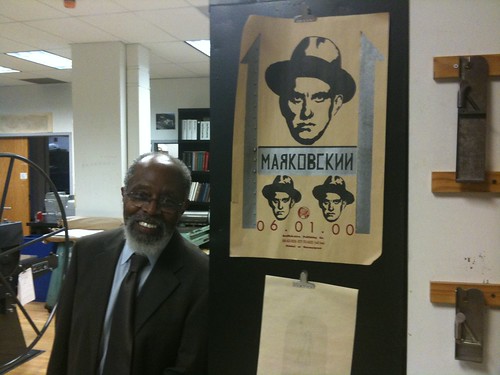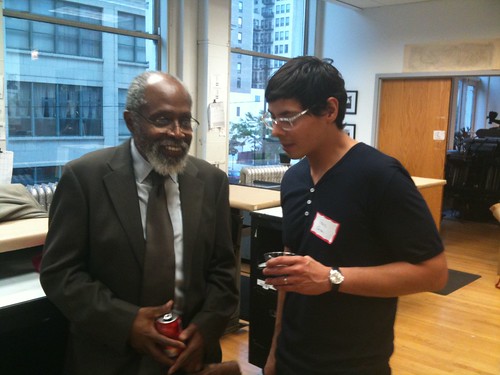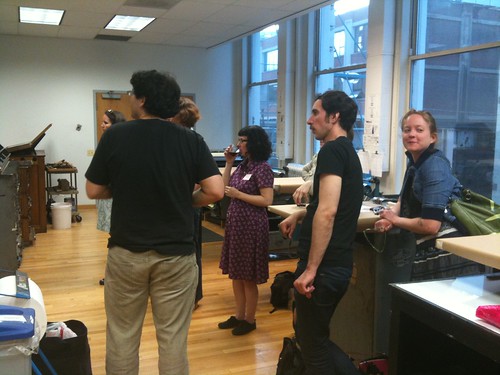 |
| Rosetta Stone (from AfricaWrites.org) |
During the most recent (Inter)National Poetry Month, poet and critic Daniel Borzutzky was invited to serve as one of the Poetry Foundation's four guest editors on its online site Harriet, and as part of his editorial charge he invited a host of poets and critics to contribute short blog essays on various themes. The poets he invited included Don Mee Choi, Lucas de Lima, Jen Hofer, and Cecilia Vicuña, as well as yours truly. When Daniel and Michael Slosek first invited me, I said yes (after assurance that only one post would be needed), and then, as April approached and innumerable deadlines closed in, I worried about what I might contribute.
After reading sparkling thoughts by Cecilia, and then Don Mee's brilliant essay, though, I developed cold feet, which froze when I viewed Lucas's stellar entry. Daniel, however, was a calm, patient and encouraging helmsman, and eventually I was able to send an essay his way, to join the others, as well as Jennifer's dazzling entry, which concluded the series, for all of which he wrote illuminating introductions. I should add that because of a little rights quibble with the Poetry Foundation the essay temporarily vanished from Harriet, but it has been reposted and is available for everyone to see.
I have posted links to the blog posts, which are all smart and concise essays, and quite creative. Mine, "Translating Poetry, Translating Blackness," arose out of longstanding concerns I have had about the body of translated work available to US and Anglophone readers, and culminated initially in a talk I gave last year at the Thinking Its Presence: Racial Representation conference at the University of Montana, organized by Prageeta Sharma, Joanna Klink and Dorothy Wang, and named after Dorothy's eponymous, foundational study.
I should note that all of the translations in my essay are my originals, so any faults therefore are mine. Also, I asked and received permission from the Poetry Foundation to publish a snippet of Daniel's introduction, and from my essay. To read the full piece, which isn't long, please do go straight to Harriet, and if you enjoy it and the other essays and find them useful in any way, please do let the Poetry Foundation know. I believe they'd appreciate hearing from readers. (Please also check out the great entries curated by Dawn Lundy Martin, Brandon Shimoda, and Stephanie Young.)
Lastly, it is tremendous honor to note that the esteemed translator Susan Bernofsky, who has brought Robert Walser, Jenny Erpenbeck, and Yoko Tawada among other major writers to US readers, wrote a beautiful piece about my essay and the topic in general, which she posted on her blog, Translationista. Please do check it out, and if you are are so motivated, please consider undertaking translation!
***
Don Mee Choi: "Darkness, Translation, Migration"
Lucas de Lima: "Poetry Betrays Whiteness"
Jen Hofer: "Proximate Shadowing: Translation as Radical Transparency and Excess"
Cecilia Vicuña: "Language Is Migrant"
John Keene: "Translating Poetry, Translating Blackness"
From Daniel's introduction to my blog post:
How does the absence of texts in translations deny individual readers reflections of their race and identity as it is presented in other countries and cultures? What does it mean that U.S. readers might not even be aware of the presence of black people, let alone black writers, in countries like Pakistan and Iraq? How does this absence limit our understanding of both the black diaspora in general and, more specifically, as John alludes to in a footnote, of the very different and often times very complex conceptions of race found in countries such as Cuba, Brazil, and the Dominican Republic? Part of the question I’m hearing here is that at this moment in the U.S., when opinions about race continue to be presented as essential truths, that it would do a world of good for unitedstatesians to understand that some of our ideas about race are arbitrary, and that others have been constructed to fit the needs of historical, establishment powers.And from my essay:
Why is this absence of translated black voices significant? One of the ongoing problems, if I can state it bluntly, is that if we already are experiencing serious and ongoing crises in American society in part through the omission, elision, and erasure of, and indifference to narratives, stories, and other forms of imaginative expression, in all their complexity, of black American people’s lives and existences—an issue that affects not only black Americans but everyone in the society; as the Native American writer Bill Yellow Robe, among many others, underlined in a talk he delivered at the 2016 Thinking Its Presence conference, the same is true with narratives, stories, plays, and so on by indigenous peoples, to give another glaring example—we further limit our understanding of the world, in multiple ways, in the absence of black stories and voices from outside the Anglosphere, which is not a coherent whole, but nevertheless is limited in its capacity to convey the breadth of experience of black peoples across the globe. Just as black Americans are hardly a “fringe,” neither are black people and voices from the rest of the world.
















